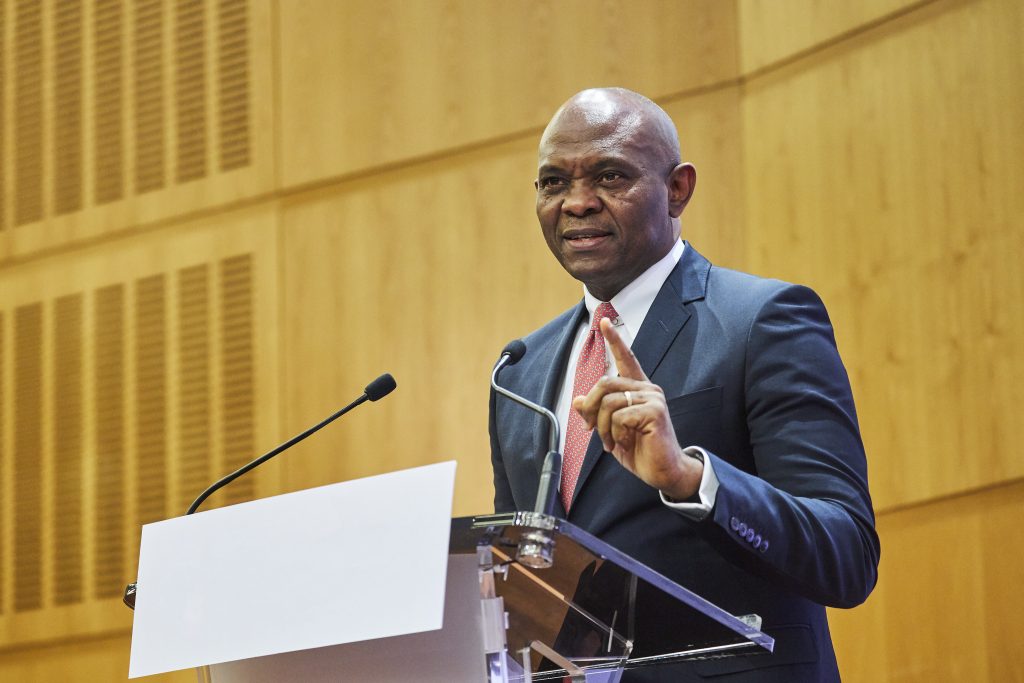As the crisis of the Covid-19 pandemic grew, so did conversations on the recovery plan for the African continent which had relatively been spared the intensity of health challenges but hit hard by the economic challenges which arose as a result of the effects of lockdowns across the world.
With several African countries, including South Africa and Nigeria, unable to cope with strict lock down measures and beginning the fall into recession, it was evident that stressed seams, were strained further by dwindling resources and supply chains.
On one of such panels organised by the New York Institute, with a number of leaders including Dr. Ngozi Okonjo-Iweala, Director of the World Trade Organisation at the time, the Founder of the Tony Elumelu Foundaton, Tony Elumelu who was present at the event called for a reset to what has been business as usual on the continent.
“Disruption has come to stay,” he said. “2020 started with disruptions and it is just, in my viewpoint, the beginning. We would continue to have economic disruptions and the point for every one of us is how do we reset Africa so that when the disruptions come, because they will definitely come, how are we able to withstand it?”
Most of the world has pretty much adapted to the new normal, as more organisations and countries continue to embrace new methods of doing things, but the question of Africa’s reset still lingers.
Africa’s economy is driven by the informal sector, majority of whom start and carry out businesses out of necessity and for most of these, finance continue to be one of the greatest needs.
Now, more than ever, majority of African businesses need suitable financial support that might include loans, debt forgiveness, low interest rates, in order to navigate the challenges and risks posed by the pandemic.
Despite the absence of these in most parts, Africa’s entrepreneurs rose to the challenge, most pivoting their businesses to fill in the gap left by dwindling supply chains with the production of Covid-19 overall kits, masks and focus on delivery services.
Ngozi Okonjo Iweala, currently the director general of WTO, had said that “the only way we are going to fight this pandemic is through unity of purpose and unity of action.
Referring to our Founder, Tony Elumelu’s comment on resetting Africa she continued, “we can see this crisis as an opportunity for the continent. Many countries scrambling because most of the supply chains were outside the continent and we have to make the continental free trade agreement real. And this means we have to rely on ourselves and have a plan where we specialise our countries in manufacturing and some of the things that we need so we can trade with other countries.”
In addition to just trying to formalise the informal sector, MSMEs also need the bold campaigns and attractive packages that could spur on their growth and development.
With almost everything calling for attention, there is also the added consideration of deciding what sectors to focus on. The need for data-driven approaches is now more evident than ever, in order to track and forecast the social and political changes that will inevitably result from the changes brought about by the effects of the pandemic and the measures put in place to reset Africa.


